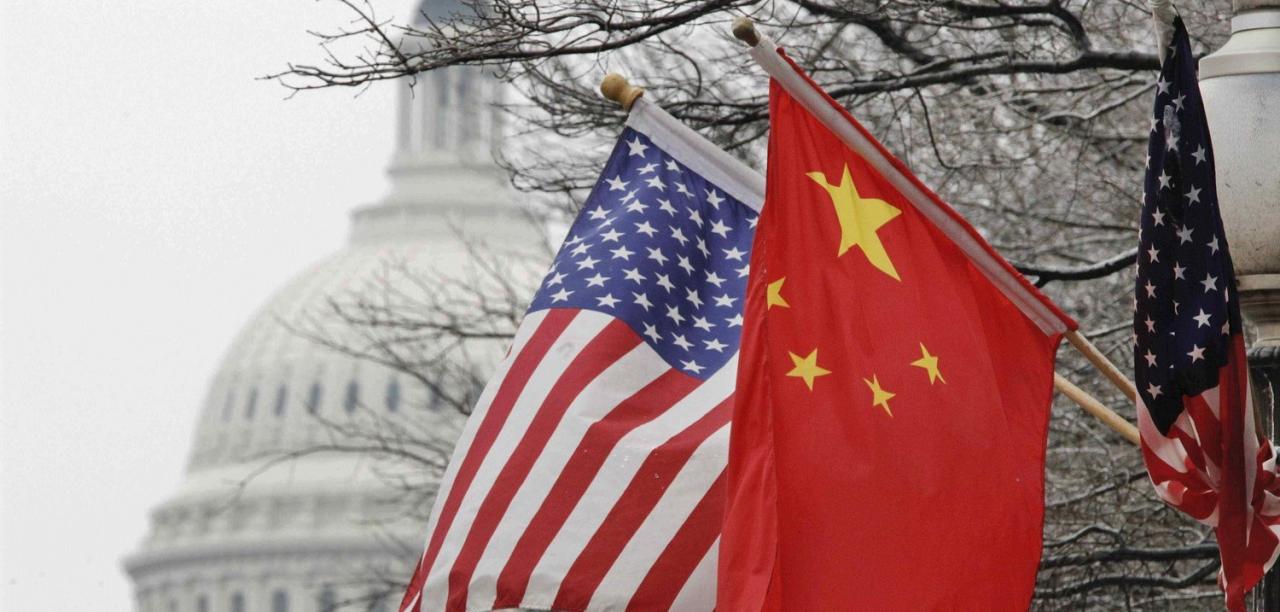US to enact China sanctions
May 30, 2018 | Expert Insights

The White House has announced that it will enact the proposed tariffs of 25% on $50 billion worth of imported goods from China. The tariffs will reportedly target goods linked to the “Made in China 2025” initiative.
Background
Current US President Donald Trump has been a vocal critic of China. He blames the country for the loss of jobs within the US. He has often criticised the “very unfair and one-sided” trade relationship. In 2017, China’s trade surplus with the United States was $347 billion.
In recent months, experts have sounded the alarm about an impending trade war between US and China. These fears solidified in March, when US President Donald Trump announced global import tariffs of 25% on steel, and China promised retaliation. Since then, tensions have escalated. The US has imposed tariffs worth over $150 billion; Beijing responded with $50 billion worth of tariffs. China targeted US agriculture, and commentators have noted that tariffs could hurt US soybean exports. China is the largest export market for American soybean farmers, accounting for 56% of the $22 billion exports.
US has targeted Chinese technology. In April, Trump unveiled a list of Chinese imports focussed on sectors such as robotics, information technology, communication technology and aerospace. Analysts noted that this list could target Beijing’s tech-focussed “Made in China 2025” policy. US has complained to the WTO about protection of intellectual property. During trade talks in Beijing this May, US officials reportedly called for China to cut the trade deficit by $200 billion.
Treasury Secretary Steve Mnuchin and Chinese Vice-Premier Liu He recently conducted a second round of talks that ended on a positive note. The Treasury Secretary stated that the two nations would be putting the trade war on hold. “Right now, we have agreed to put the tariffs on hold while we execute the framework,” he said. China agreed to increase its imports of US goods and cut the trade deficit. There have been other positive developments this month, including President Trump softening his stance on sanction-hit ZTE, a move that was highly criticised.
Analysis
After weeks of apparent de-escalation of ties, the White House announced that it will enact tariffs of 25% on $50 billion worth of goods from China. The tariffs will reportedly focus on the “Made in China 2025” initiative. Furthermore, the US will implement specific “investment restrictions and enhanced export controls” related to the “acquisition of industrially significant technology.” The final list of tariffs will be announced on June 15th.
The Chinese Commerce Ministry has said that the statement is in violation of the agreement reached by Vice Premier Liu He and Treasury Secretary Steve Mnuchin earlier this month. "Regardless of what measures the US launches, China has the confidence, capability and experience in safeguarding the interests of the Chinese people and its core national interests. China urges the US to move in the direction of the spirit of the joint communique," the Ministry said in an official statement. Chinese Foreign Ministry spokeswoman Hua Chunying urged Washington to “meet China halfway.” She said that China would protect itself if Washington continues to act in an “arbitrary and reckless manner”. “When it comes to international relations, every time a country does an about face and contradicts itself, it’s another blow to, and a squandering of, its reputation,” Hua said.
Commerce secretary Wilbur Ross is due to visit China to start a second round of talks later this week. The White House has said that the US will ask Beijing to remove a number of trade barriers including non-monetary barriers. It will also continue talks to resolve “long-standing structural issues and expanding our exports by eliminating China’s severe import restrictions.”
Commentators have noted that Mnuchin’s announcement earlier this month was criticised by hardliners in the White House. Eswar Prasad, former head of the IMF’s China division said, “China’s unwillingness to agree to a trade deficit reduction target or make other major concessions has probably emboldened those in the administration who have argued for a hard-line stance against China on trade issues.” This includes officials like Trade Representative Robert Lighthizer, who said that the US "may use all of its legal tools to protect our technology through tariffs."
Other experts such as Jeffrey A. Bader, China advisor under President Obama said that the tariffs could be a tactical measure to force China to make concessions. “To me, it is not at all clear that Trump has turned his back on a deal,” he said. However, he also noted that “On every issue, the balance of power in this administration leans toward a more hostile and adversarial relationship with China.”
Assessment
Our assessment is that the Trump administration’s recent move may be intended to give commerce secretary Ross leverage in the upcoming talks with Beijing. This may push China into making concessions. However, on the other hand, Trump’s unpredictability and mixed signals from Washington could deter China from making any commitments. As stated previously, we believe that a trade war would harm not only US and China, but the entire global economy. If this rhetoric continues, it may affect the world GDP by 1-3 percentage points in the next few years and could wear down multilateral and bilateral trade regulations that have governed global markets since the 1990s.








Comments